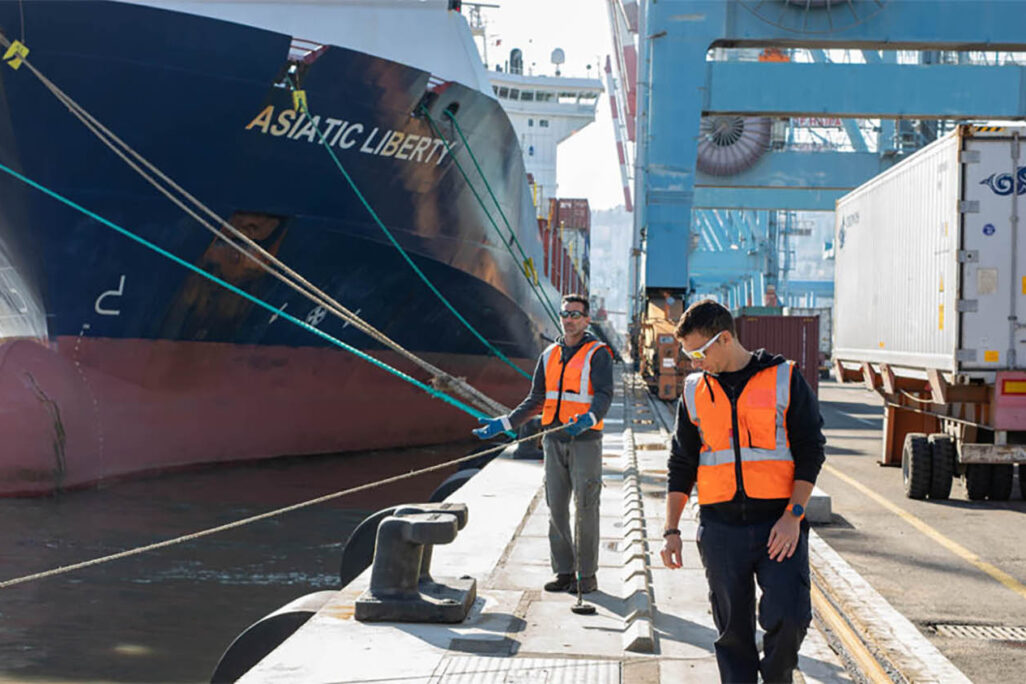
The Histadrut declared a labor dispute in the ports following the announcement by the Minister of Transport, Merav Michaeli, of a unilateral transfer of wharves to the new private ports, contrary to prior understandings between the parties.
The labor dispute includes 2,600 workers at Israeli ports, Haifa Port, Ashdod Port, Haifa Maritime Transport Company and Ashdod Maritime Transport Company.
Causes of the labor dispute detailed by the Histadrut:
- Unilateral conduct in delivering additional docks to the new private port, contrary to many years of understandings between the parties that underpinned the reform agreements;
- Unchecked opening of the maritime cargo market to competition, ignoring worker representation;
- A threat to the financial strength of existing ports, as a result of the market's unchecked opening up to competition and its serious consequences for the working public;
- Unilateral action, in bad faith, and in violation of the basic foundations of employment relations.
The Histadrut says that the Minister’s move is far more serious as it was made during a 60-day negotiation period, which began last Sunday, in accordance with the decision of the National Labor Court.
“The Histadrut under my leadership acts responsibly and with respect for the state, but I will not allow workers and their status to be harmed,“ said Histadrut chairman Arnon Bar-David.
“Unfortunately, following the unilateral conduct of the Ministry of Transport and its head, we had to declare a labor dispute today. We will continue to maintain the employment security of workers in Israel.”
Chairman of the Histadrut’s Transport Workers Union, Avi Edri said in a statement: “Following the Minister of Transport’s irresponsible announcement, the Histadrut will assume responsibility, preserve and protect the port workers – while demonstrating responsibility for the economy that goes above and beyond.”

Michaeli announced that she intends to transfer Wharf 28 in Ashdod and Wharves 7 and 8 in Haifa to the Southern Port Authority in Ashdod, which is controlled by the Swiss company Terminal Investment Limited, and the Gulf Port in Haifa, which is controlled by the Chinese company Shanghai International Port Group. The move, she said, is intended to reduce burden and resolve the congestion crisis in the ports. The wharves now belong to the Israel Ports Company, and stand empty after being used to build the new ports.
The transfer of the docks is being carried out despite the opposition of the professional bodies at the Israel Ports Company and the Shipping Authority. In the past, the Minister herself had also opposed this move, which is expected to upset the competitive balance between the various ports and ultimately impair the ability of the old ports to compete with the new.
According to most professionals, the congestion crisis in the ports is mainly due to a shortage of manpower, which the new docks are not going to solve. The new docks are not currently equipped with the cranes and unloading equipment needed to operate them, so it is not clear how this will benefit the unloading of the ships.
This article was translated from Hebrew by Jonathan Epstein.






